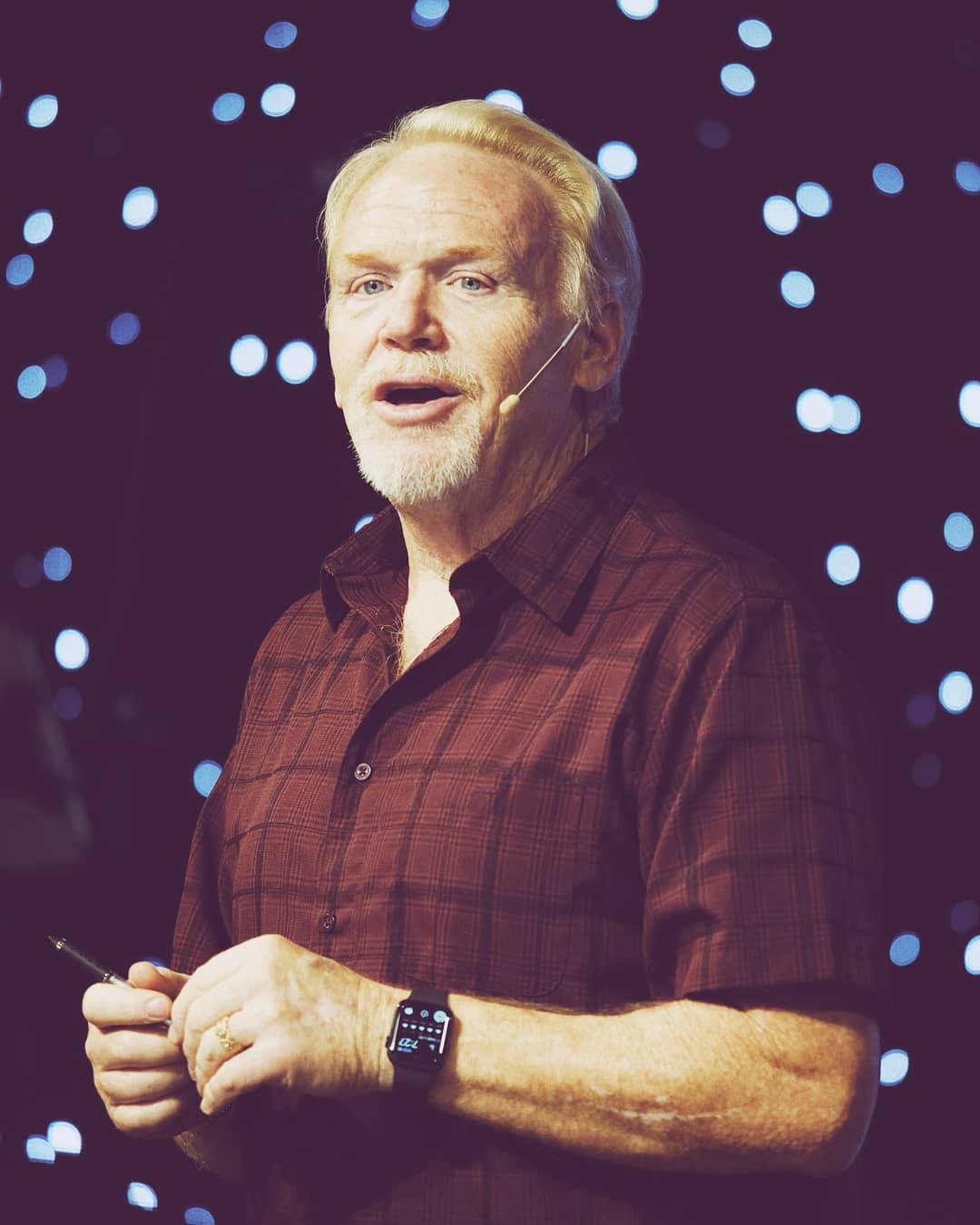Before You Go…..
…..Schedule your FREE 30 Minute Zoom Consultation
No Obligation!
Let’s connect to chat and pray!

Not sure if a church consultant is really needed at your church? Use our FREE Church Assessment Tool to find out.
Schedule your FREE, no obligation, thirty (30) minute Zoom initial consultation.
Utilizing a process we call “Virtual Church Consulting” we work with you through a series of steps to help pinpoint problems and offer solutions. This all online church consulting method is effective and affordable.
Your website is the “digital foyer” for the church. It is the first impression for almost everyone that visits your church.
Demographic information is helpful in getting an overview of what is happening in your community.
Church marketing is a tool to help people who are in need of what your church offers to be able to connect with you.
An outreach strategy is a specific set of tactics intended to ultimately attract new people to your church.
Steve Lawes is a Certified Church Consultant. He has been the lead Pastor of Keys Vineyard Church in Big Pine Key since 1992. He has a Bachelors Degree in Bible and Theology from Berean University and Masters and PhD Degrees from Atlantic Coast Theological Seminary. He lead the Cuba Missions Team for Vineyard Missions from 1995-2005 and traveled to Cuba more than twenty times helping to plant churches and build up local leaders. He served as the South Florida Area Leader for the Association of Vineyard Churches for ten years. He also founded the Jesus Moment Bible Institute and Seminary in 2014 which has a student enrollment of over 2000. He has written three devotional books, Daily Psalt Intake, Daily Sage Intake and Daily Strength Training which are now out of print but are currently available as free e-books.

We just started a new series called “Kingdom Revealed” last week and looked at Genesis Chapter 1. We will take some time this week to emphasize four main ideas before we move on to Genesis Chapter 2. The four ideas are the cosmic temple, cosmology, imagers, and elohim.
We finished up last week with the following passage:
Genesis 2:1-3 (NIV)
Thus the heavens and the earth were completed in all their vast array. 2 By the seventh day God had finished the work he had been doing; so on the seventh day he rested from all his work. 3 Then God blessed the seventh day and made it holy, because on it he rested from all the work of creating that he had done.
While the address for the passage says Genesis 2, these verses should be included in Genesis Chapter 1. They picture the completion of the cosmic temple developed in Genesis Chapter 1. We said the heart of God was to dwell with us, His imagers, on this planet in a perfect situation. Genesis 1 is a picture of God’s ideal.
To make sense of what is happening in Genesis Chapter 1, it is essential to understand Biblical cosmology. Cosmology is a way of thinking about things. You have a cosmology, as did the people to whom the Bible was first written. We can’t force our 2023 way of thinking on the text in Genesis Chapter 1. It is not a science book or a textbook. It is divinely inspired literature that was written over 2500 years ago. We need to understand Genesis Chapter 1 from the cosmology of the people it was originally written to. Biblical cosmology is not a scientific model for understanding the universe but a theological and symbolic framework. It is less about providing a literal description of physical reality and more about articulating a spiritual, moral, and metaphysical worldview.
We will also deepen our discussion about what it means to be created in the image of God.
Genesis 1:27-28
27 So God created mankind in his own image, in the image of God he created them; male and female he created them. 28 God blessed them and said to them, “Be fruitful and increase in number; fill the earth and subdue it. Rule over the fish in the sea and the birds in the sky and over every living creature that moves on the ground.”
Human beings were created to be like God. The most helpful way to understand this is to think of the word as a verb. We were created to image God, to be his imagers, to partner with Him and represent Him.
We need to introduce the elohim into our series as well. Before God created us, His human family (imagers), he created a spiritual family. We often think of them as the angels. But this spiritual family is actually more than angels. The Bible calls them “sons of God.”
Job 38:4-7 (NIV)
4 “Where were you when I laid the earth’s foundation? Tell me, if you understand. 5 Who marked off its dimensions? Surely you know! Who stretched a measuring line across it? 6 On what were its footings set, or who laid its cornerstone— 7 while the morning stars sang together and all the angels shouted for joy?
God’s heart is to live with his divine and human family on earth. God wanted the whole earth to be a place where heaven and earth met, where humanity could enjoy the divine, and where the divine could enjoy earth and humanity.
We will look at this and more at Keys Vineyard Church this weekend, so plan to join us in person or online.
Steve Lawes is a Church Consultant and also provides coaching for pastors, churches, ministries and church planters.

Creating a sermon series can powerfully impact the spiritual growth of a congregation, providing a deeper understanding and application of biblical truths. Crafting a cohesive, meaningful, and inspiring sermon series involves strategic planning, prayerful consideration, and attentiveness to the congregation’s spiritual needs. Here, we explore ten suggestions for constructing a sermon series that can sow seeds of faith, hope, and love into the hearts of listeners.
Choosing a topic that resonates with the congregation is pivotal. It could be based on a specific book or character of the Bible, or it might address prevalent struggles such as anxiety, faith, relationships, or spiritual growth. Here is a list of ten possible sermon series to consider:
Discovering Purpose:
Explore how believers can find and live out their God-given purpose.
Scriptures: Jeremiah 29:11, Ephesians 2:10
Living Hope:
An exploration of the hope found in Christ despite life’s challenges.
Scriptures: 1 Peter 1:3, Romans 15:13
The Life of Jesus:
Diving into the life, teachings, death, and resurrection of Jesus.
Scriptures: The Gospels (Matthew, Mark, Luke, John)
Fruit of the Spirit:
A series on the fruits of the spirit and how to cultivate them daily.
Scriptures: Galatians 5:22-23
Navigating Relationships:
Addressing aspects of various relationships – marriage, friendship, family, and work from a Biblical perspective.
Scriptures: 1 Corinthians 13, Ephesians 5:21-33
Spiritual Disciplines:
Exploring practices like prayer, fasting, worship, and solitude for spiritual growth.
Scriptures: Matthew 6, 1 Timothy 4:7-8
End Times and Eschatology:
It is understanding what the Bible says about the end times, heaven, and eternity.
Scriptures: Revelation, 1 Thessalonians 4:13-18
Faith and Doubt:
Addressing doubts, asking questions, and strengthening faith.
Scriptures: John 20:24-29, Jude 1:22
The Armor of God:
Exploring spiritual warfare and how believers can equip themselves.
Scriptures: Ephesians 6:10-18
Parables of Jesus:
In-depth looks at Jesus’s stories and the truths they reveal about the Kingdom of God.
Scriptures: Various parables across the Gospels
Every powerful sermon series begins with earnest prayer. Seeking God’s guidance, wisdom, and direction ensures that the series aligns with His will and meets the congregation’s spiritual needs.
Maintain a consistent theme throughout the series to facilitate a comprehensive understanding of the subject matter. Ensure that each sermon, while a standalone message, contributes cohesively to the larger thematic arc.
Utilize a variety of scriptures to offer a holistic biblical perspective on the theme. This will provide depth and a comprehensive understanding, enabling congregants to explore how biblical passages interrelate.
Craft sermons that are relatable and applicable to daily living. Utilize real-life examples, stories, and practical applications to help congregants connect biblical principles to their everyday experiences.
Ensure that the delivery is engaging and captures attention. Employing effective communication techniques, such as incorporating visuals, videos, and interactive elements, can enhance the delivery and retention of the message.
Provide additional resources like study guides, devotionals, or small group materials that align with the sermon series. This ensures congregants can dive deeper during the week and facilitates community discussion and reflection.
Consider incorporating guest speakers, bringing fresh insights and perspectives on the theme. This variety can enrich the series and maintain a dynamic atmosphere.
Establish a feedback mechanism, inviting congregants to share their thoughts, questions, and reflections on the sermons. This can inform future sermon series and facilitate a more interactive and engaged learning environment.
Post-series, take time to evaluate its impact and reflect on areas of improvement. Consider gathering a focus group from the congregation to provide insights on what worked well and areas that could be enhanced.
A thoughtfully curated sermon series has the potential to inspire change, provoke thought, and encourage spiritual development within a church community. Pastors and ministry leaders can effectively shepherd their congregation toward more profound understanding and spiritual maturity by ensuring the series is prayerfully considered, contextually relevant, consistently themed, and engagingly delivered. Moreover, providing supplementary resources, inviting diverse voices, and incorporating feedback ensures sustained engagement and facilitates continuous improvement in the spiritual nourishment provided to the flock. Ultimately, every sermon series should aim to glorify God, edify believers, and magnificently illustrate the timeless truths contained within the Scriptures.
Steve Lawes is a Church Consultant and also provides coaching for pastors, churches, ministries and church planters.

As a church consultant, it is imperative to be in tune with the major issues the church is dealing with. The church in America, like other institutions, is not immune to the ever-shifting landscape of societal change, cultural evolution, and global events. Over the last few decades, the church has grappled with a range of issues, some longstanding and some relatively new. This article sheds light on the top five problems facing the American church today:
The issues facing the American church today are complex, interwoven with societal changes and broader global events. They call for introspection, dialogue, and action. Church leadership and the wider Christian community need to come together, grounded in faith and a commitment to the Gospel’s core messages, to navigate these challenges and ensure a vibrant future for the church in America.
Steve Lawes is a Church Consultant and also provides coaching for pastors, churches, ministries and church planters.
“Steve and his team at Keys Vineyard Church have built a church that has done an inspiring job reaching their community. Steve is a treasure trove of experience and has continued to prioritize learning and growth throughout his more than 30 years of ministry in a way few pastors have. You’ll get a lot out of connecting with him!”
“I watched first hand as Steve experienced the devastation of hurricane Irma in his town of Big Pine Key, Florida. The town was destroyed, the church building rendered unusable and the staff impacted personally. I watched a leader rise to the need of his community and minister in a situation that not very many could. He has a powerful voice of experience and wisdom earned the hard way.”
“Steve Lawes is a valuable coach/ mentor. I’ve watched Steve over the last thirty years build a substantial outward focused church with disciples who do what Jesus did. He has inspired leaders of churches with simple/tested ideas to develop leaders and grow churches.
“
“Steve Lawes is an outstanding coach. He is authentic, creative, and personable. He has more cutting edge ideas than any pastor I know in regard to evangelism and meeting the needs of people in his community.”
We are pleased to be partnering with the Jesus Moment Bible Institute and Seminary to be able to offer Free Church Consulting Training. Even if you are not looking to become a certified church consultant, the free church consultant training will be beneficial for your personal ministry.
I t would seem that the answer was obvious. But getting well for the man who had been not well for a very long time meant that he would have to do something different. It is not easy to change, but it always starts with a first step.
Take that first step now by sceduling your no obligation, free thirty (30) minute Zoom meeting with us today. You have nothing to lose and it may be your first step to a new and healthy way of doing and being the church.